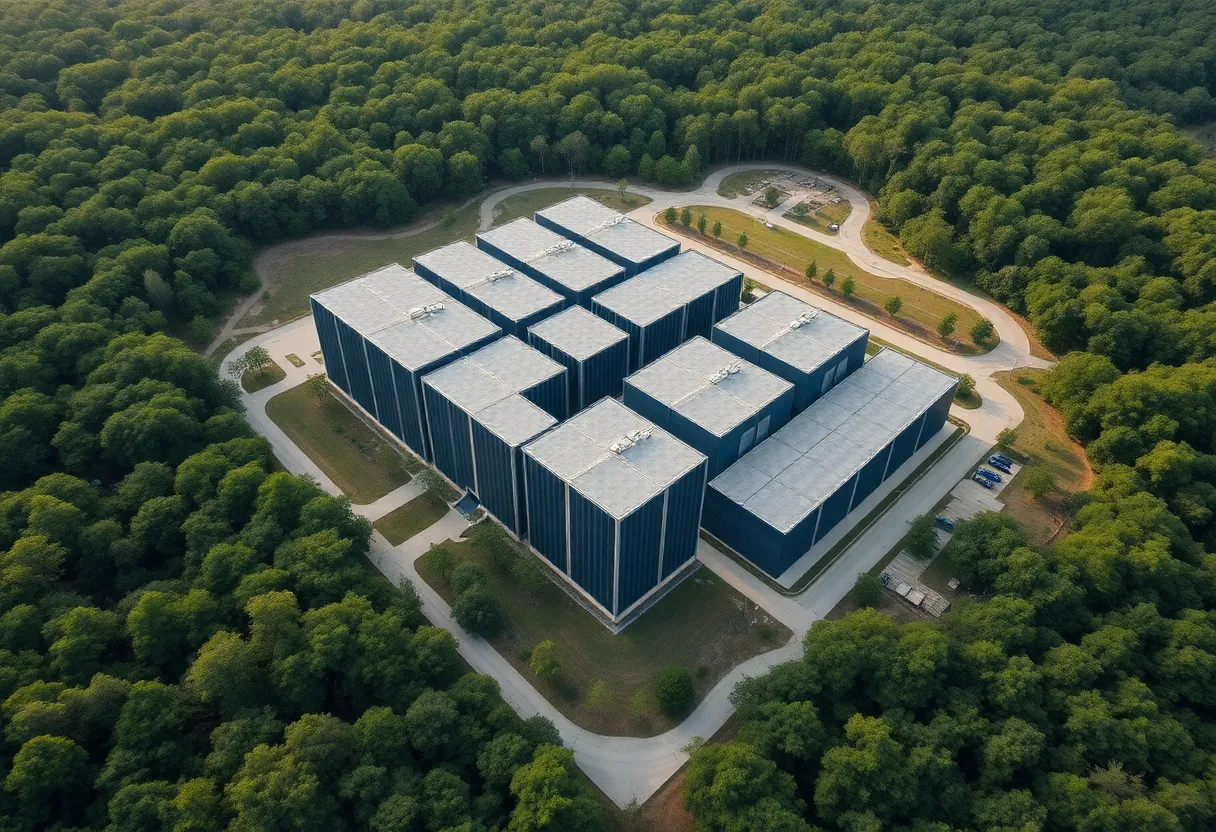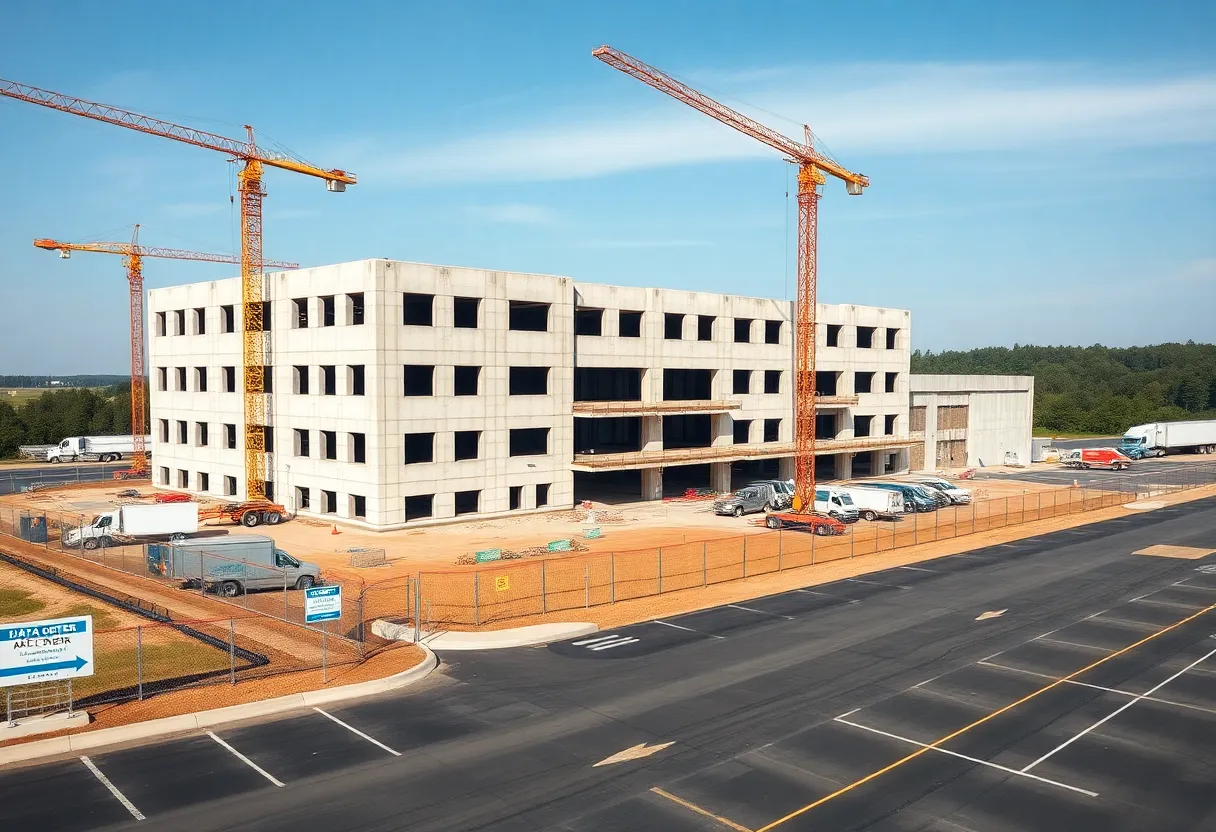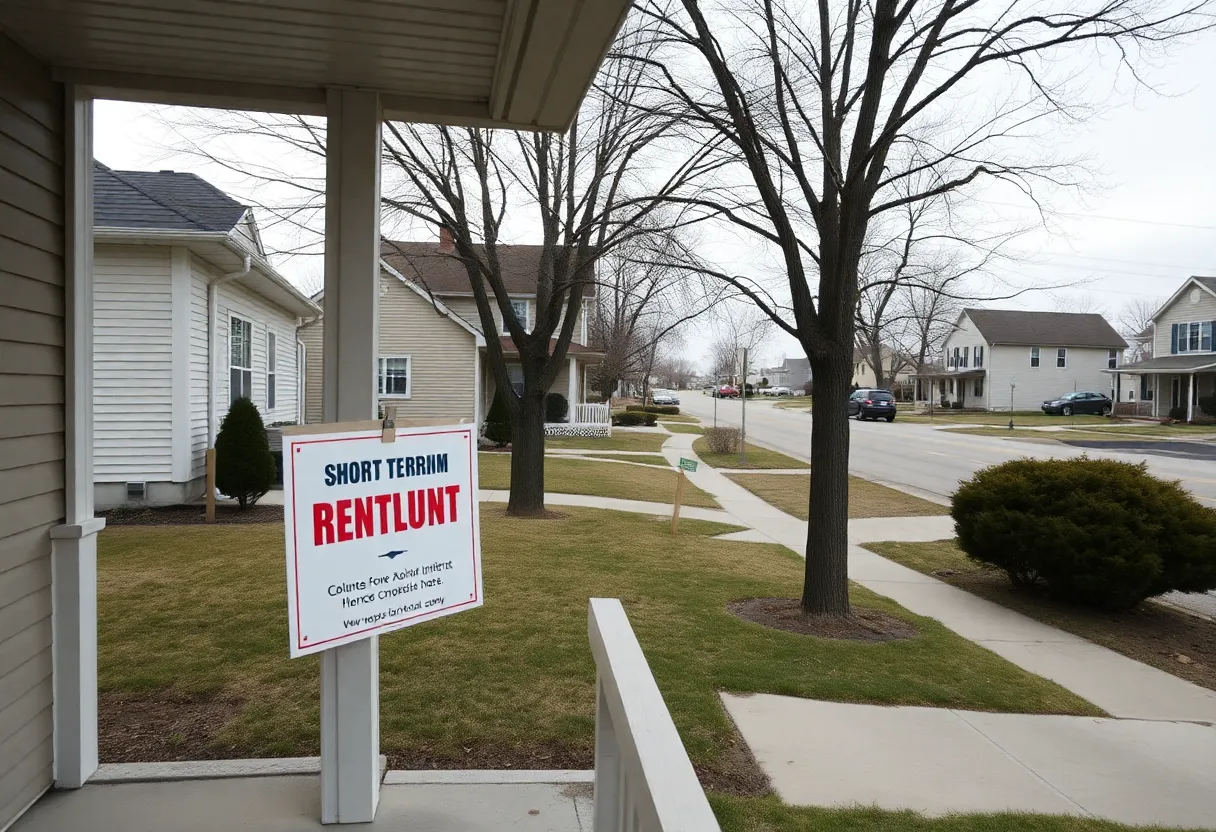News Summary
Georgia’s data center market has surged, becoming the second largest in the U.S., generating significant economic benefits yet raising environmental concerns. With 72 to 97 data centers operational and a contribution of $25.7 billion to the state’s GDP, the sector has also sparked debates over resource consumption. Critics label data centers as resource depleters, while local governments respond with restrictions. As public awareness increases, discussions about balancing growth with environmental sustainability are becoming vital for the state’s future.
Georgia’s Data Center Boom Fuels Economic Growth Amid Environmental Concerns
Georgia is witnessing a significant surge in its data center market, making it the fastest growing in the United States and only second to Virginia in overall volume. This expansion brings both economic benefits and environmental debates, particularly concerning resource consumption and local infrastructure needs.
Job Creation and Economic Contributions
Data centers currently operating in Georgia are estimated to number between 72 and 97, with many additional projects in the planning stages. In 2023 alone, these facilities contributed an impressive $25.7 billion to the state’s Gross Domestic Product (GDP) and generated about $1.8 billion in state and local tax revenue. This growth in the data center sector has translated into approximately 30,070 direct jobs and an overall impact on around 176,790 jobs statewide, according to findings from PricewaterhouseCoopers.
Significant Investments on the Horizon
Recent announcements in 2023 indicate that new data centers occupy around 30 million square feet and represent an investment of $40 billion. This influx of funding is expected to bolster job creation and enhance local government revenues, particularly in rural areas where economic opportunities are often limited.
Environmental and Regulatory Concerns
Despite the economic benefits, critics express concerns regarding the environmental impact of these facilities. Many argue that the high consumption of energy and water makes the benefits questionable, with some comparing data centers to “locusts” that drain local resources. This has led several local governments to take action, with some even imposing restrictions or bans on new data centers. For example, the Atlanta City Council has temporarily prohibited data centers in certain neighborhoods, requiring special-use permits for new developments in others.
Policy and Legislation Developments
In response to the ongoing discussions about the implications of data centers, Georgia’s General Assembly recently passed legislation aimed at suspending a sales tax exemption designed to attract additional data centers. However, the governor vetoed this measure, indicating a complex balancing act between encouraging economic growth and addressing environmental impacts.
State officials are also actively developing strategies to manage the energy and water demands posed by the increasing number of data centers and other large electric customers. Proposed legislative measures aim to prevent utilities from transferring the costs associated with data centers onto residential and small business customers, thereby safeguarding local communities.
Long-term Employment and Infrastructure Impact
The construction of data centers tends to create long-term job opportunities, as these projects usually span several years. Unlike other industries, data centers do not require extensive local infrastructure—such as schools and roads—making their economic footprint less burdensome on communities.
Growing Public Awareness and Pushback
As awareness of the negative impacts associated with data centers increases, pushback from local communities in Georgia is becoming more evident. While data centers are crucial for meeting the escalating demand for cloud-based computing, artificial intelligence, and various technology applications that drive economic growth, the ongoing debates around their sustainability and impact on resources point to a significant crossroads for stakeholders.
In conclusion, Georgia’s rapid data center expansion offers considerable economic benefits, but it also raises pressing environmental concerns. As stakeholders grapple with these issues, it remains to be seen how the balance between job creation and resource sustainability will shape the future development of this burgeoning industry.
Deeper Dive: News & Info About This Topic
Additional Resources
- Savannah Now: Data Centers Boosting Tax Revenue or a Drain?
- About Amazon: AWS Data Centers Locations
- Data Center Frontier: Jobs in Data Centers
- AZ Central: Data Centers and Arizona’s Economy
- Tallahassee: Seizing the Moment on Data Centers in Florida
- Wikipedia: Data Center
- Google Search: Data Centers
- Google Scholar: Data Centers
- Encyclopedia Britannica: Data Center
- Google News: Data Centers
Author: Construction NY News
NEW YORK STAFF WRITER The NEW YORK STAFF WRITER represents the experienced team at constructionnynews.com, your go-to source for actionable local news and information in New York and beyond. Specializing in "news you can use," we cover essential topics like product reviews for personal and business needs, local business directories, politics, real estate trends, neighborhood insights, and state news affecting the area—with deep expertise drawn from years of dedicated reporting and strong community input, including local press releases and business updates. We deliver top reporting on high-value events such as the New York Build Expo, infrastructure breakthroughs, and cutting-edge construction technology showcases. Our coverage extends to key organizations like the Associated General Contractors of New York State and the Building Trades Employers' Association, plus leading businesses in construction and real estate that power the local economy such as Turner Construction Company and CMiC Global. As part of the broader network, including constructioncanews.com, constructiontxnews.com, and constructionflnews.com, we provide comprehensive, credible insights into the dynamic construction landscape across multiple states.





